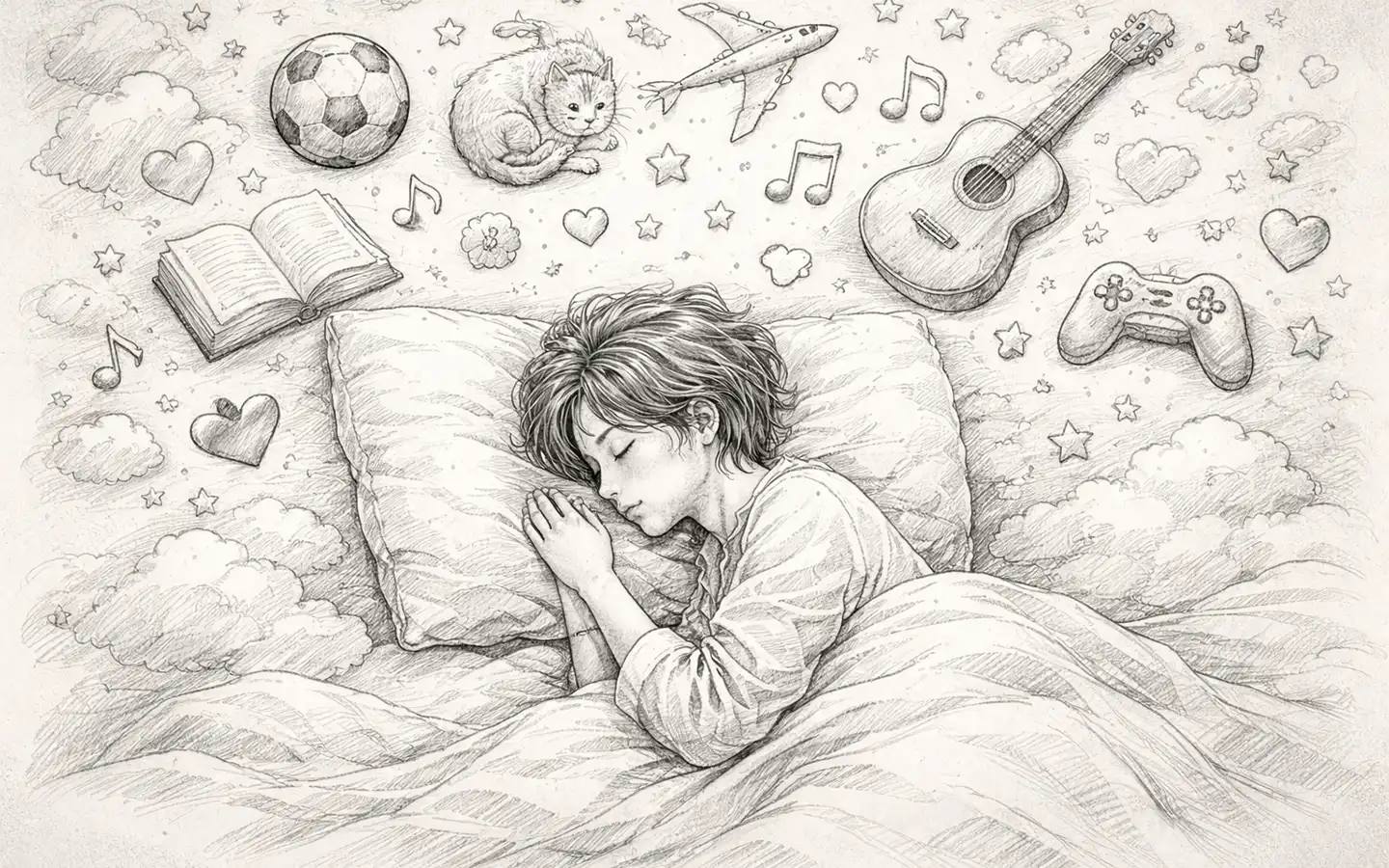July 27, 2025
10 Best Sleep Products That Can Help You Sleep Better Tonight
I think you'll agree with me when I say:
Getting a good night’s sleep shouldn’t be something you work for. It should be as natural as breathing, but unfortunately, around 30% of the population deal with some kind of sleep problem. Luckily, there are some products that solve some of these issues, so I’ll share what I found to be the best sleep products on the market today.
Just so you know, I've actually tried these myself, and some I use regularly because they just work!
Let’s start with the product I use every day!
1. Kimba – Scent Therapy for Your Limbic System
Kimba is the first personal limbic therapy system that will completely revolutionize your sleep!
The system includes:
- A sterile ultrasonic diffuser that holds three scent capsules
- Integration with your wearable, like Oura, Whoop and other health trackers
- A real-time AI that adjusts scent delivery based on your biometrics
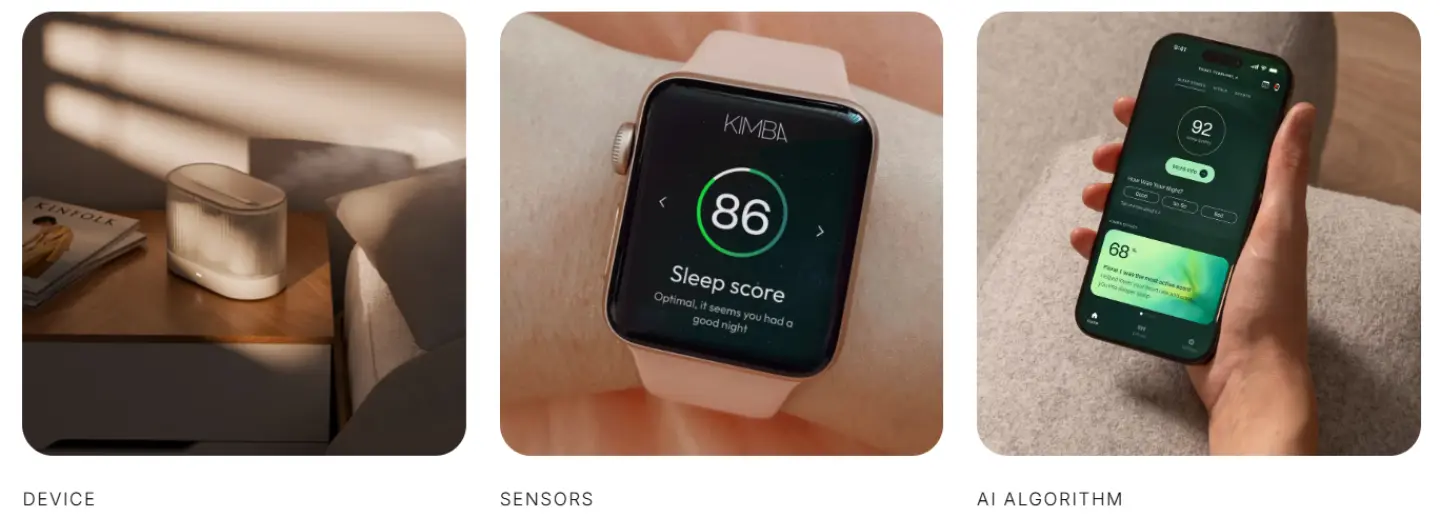
Even the best diffusers on the market mostly just change how your room smells, and that’s it.
Traditional aromatherapy like that might help you relax at first, but the brain quickly adapts to scent and stops responding, sometimes within minutes of use. This is called olfactory habituation and Kimba prevents this from happening by delivering short scent pulses spaced throughout the night, so the limbic system keeps receiving a fresh signal that supports sleep.
What makes Kimba different is how it listens to your body in real time. You can pair it with the wearable of your choice, and as soon as your health tracker picks up changes in heart rate, HRV, or even sleep stages, Kimba responds immediately. It selects the scent your nervous system needs in that moment, and releases a precise microburst to bring you back to rest.
The scent blends are 100% natural and environmentally safe. They’re made from natural plant compounds and developed by a team of neuroscientists and sleep experts. Each blend is designed to influence the pathways that regulate stress, calm breathing, and support deep recovery.
I’ve seen the difference in my sleep scores. My HRV is steadier, deep sleep is more consistent, and I recover better overnight, even with less hours of sleep. But more importantly, I feel like my nervous system finally has something to support it in real time.
If you’re experiencing a variety of sleep problems like sleep fragmentation due to stress or trauma, Kimba can help you break those patterns and reclaim your nights. There’s so much I’d like to share about Kimba with you, so if you’re interested if Kimba is for you - join our monthly newsletter below.
Join the Kimba newsletter to get early access and be notified when Kimba becomes available!
2. Eight Sleep – Best for temperature-related sleep disruptions
Are you frequently waking up sweating or freezing in the middle of the night? Your bedroom environment is probably working against you. Eight Sleep promises to fix these issues with precision temperature control that adapts throughout the sleep cycles.
The system lets you set different temperatures for each side of the bed and automatically adjusts based on your sleep phases. The setup takes some time, and you'll occasionally deal with app connectivity issues. But if overheating or getting too cold is disrupting your sleep, this isone of the few products that genuinely upgrades your entire sleep environment to feel premium and tailored to you, and definitely one of the best sleep products I’d recommend for this purpose.
It’s also ideal for couples who prefer different sleeping temperatures, making it a practical solution for shared beds without compromise.
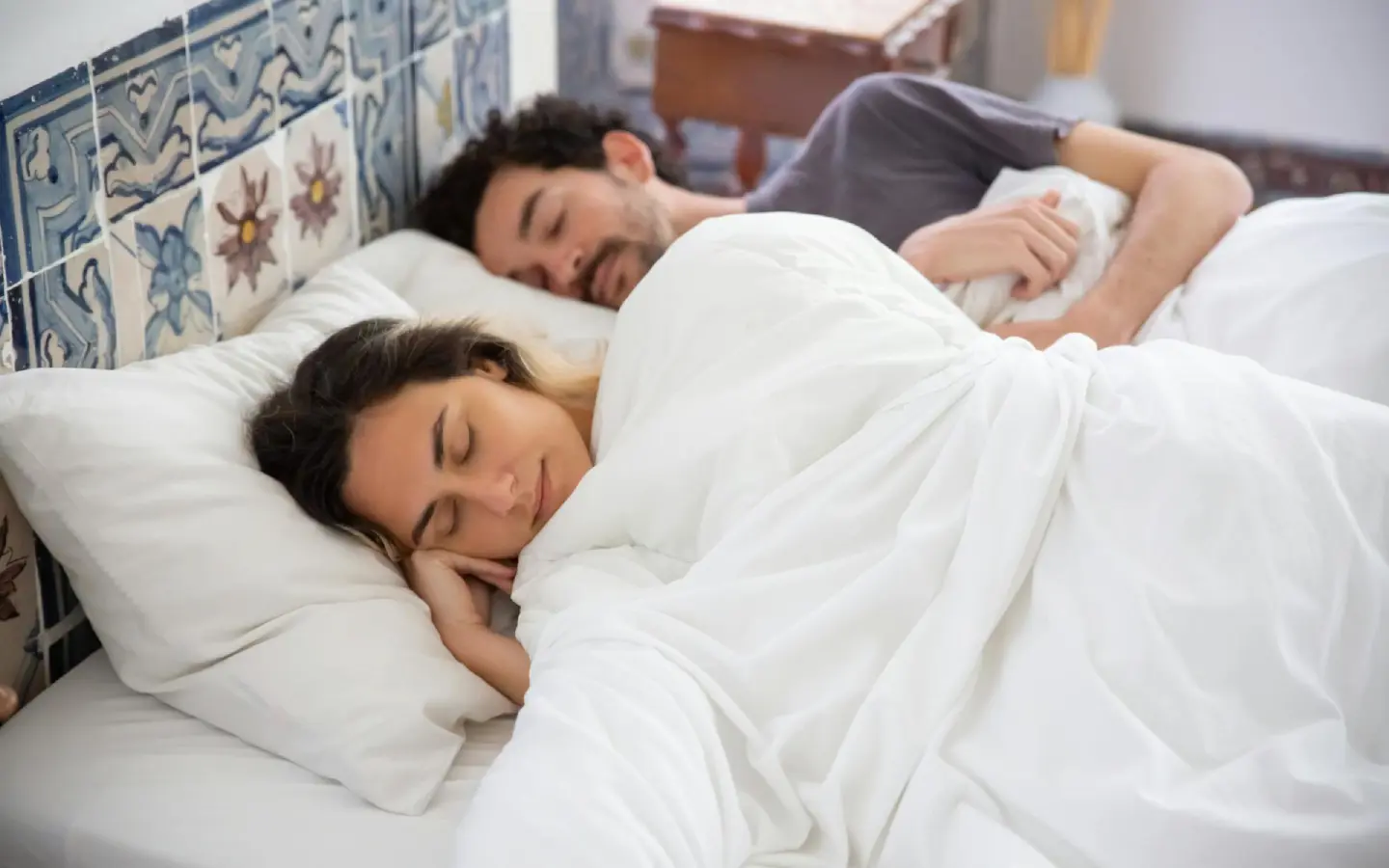
3. Ozlo Sleepbuds – Best for blocking disruptive noise
Light sleepers know how frustrating it is when even the faintest sound pulls you out of deep sleep.
I've tried countless earplugs and sleep headphones, but they are either uncomfortable or fall out during the night. Ozlo Sleepbuds are not like this! They're specifically made for sleep, meaning they come with a low-profile design that works for side sleepers too.
You can use them to play calming soundscapes or simply as high-quality noise blockers. The passive noise isolation is excellent, and they stay comfortable all night. I rely on these when traveling or when I have a really important meeting to attend the next day, so I use it to prevent any noise that might disturb my sleep.
The battery life is great on these and lasts around 10-11 hours for me, though Bluetooth connectivity can occasionally be finicky. Still, if noise is your primary sleep disruptor, these are among the best sleepbuds out there, in my opinion.
4. Hatch Restore 2 – Best for building consistent wind-down routines
Breaking the habit of scrolling your phone before bed isn't easy. The Hatch Restore 2 gave me something better to focus on during my wind-down time.
Hatch Restore is a smart sound machine alarm clock that you can keep at your nightstand. You can program custom routines that combine dimming light with calming audio, creating a clear signal that it's time to transition into rest. The sunrise alarm feature gradually brightens the room to wake you naturally instead of jolting you awake with harsh sound.
If you struggle with sleep timing or need help disconnecting from screens, this is one of the better sleep accessories.
5. Oura Ring – Best for understanding your sleep patterns
You can't improve what you don't measure, and that’s why a quality health tracker is a must for me.
The Oura Ring gives you detailed insights into your sleep stages, heart rate variability, body temperature, and recovery metrics without the bulk of a smartwatch.
What makes Oura valuable isn't just the data, it's how that data helps you connect your daily choices to your sleep quality. I can see exactly how stress, alcohol, late meals, or even room temperature affects my recovery. When I started using Kimba consistently, the improvements in my deep sleep and HRV recovery were clearly visible in the Oura data.
The ring is comfortable enough to forget you're wearing it, which keeps the tracking honest. The monthly subscription gives you access to detailed insights and trends. For anyone serious about optimizing their sleep, this is one of the best sleep products available.
[CTA_INSERT]
6. Whoop – Best for connecting sleep to overall recovery
While Oura focuses primarily on sleep and readiness, Whoop takes a broader approach to recovery tracking. It monitors your daily strain, heart rate variability, and sleep quality to give you a comprehensive picture of how well your body is adapting to stress.
I've found Whoop particularly helpful for understanding how my nervous system responds to different types of challenges. When I combined Whoop tracking with Kimba's real-time nervous system support, I could see clear improvements in my recovery scores over time.
The device requires a membership and doesn't have a display, so everything lives in the app. But if you want to understand how sleep impacts stress and recovery, Whoop provides valuable insights that go beyond just tracking sleep time.
7. Molekule Air Mini+ – Best for improving bedroom air quality
Poor air quality can disrupt sleep in ways you might not notice. If you wake up with congestion, dry throat, or feel stuffy in the morning, your bedroom air might be part of the problem.
The Molekule Air Mini+ uses PECO technology to eliminate pollutants that traditional HEPA filters can't capture, including mold, bacteria, and volatile organic compounds. Within a few days of using it, I noticed clearer breathing and fewer nighttime disruptions.
It's designed for smaller spaces and runs quietly enough for bedroom use. The filters are more expensive than standard HEPA replacements, but if air quality is affecting your sleep, this is one of the most effective solutions I've found.
8. Therabody SmartGoggles – Best for releasing physical tension before bed
When mental stress manifests as physical tension around your eyes and forehead, it can be hard to transition into rest. The SmartGoggles use gentle vibration, heat, and compression to help release that accumulated tension.
I don't use them every night, but they're incredibly helpful after long days of screen work or when I'm carrying emotional stress. The device monitors your heart rate and adjusts the intensity accordingly. A 10-15 minute session often makes the difference between lying awake with a buzzing mind and actually being able to settle into sleep.
They're not ideal for side sleepers and they're a significant investment, but for people who hold stress in their face and head, they provide targeted relief that's hard to achieve otherwise.
9. Somnee, Muse, and Elemind – Best for experimenting with neurofeedback
These headband devices represent the frontier of sleep technology. Muse focuses on meditation and mindfulness training, while Somnee and Elemind use various forms of stimulation to influence brain states associated with sleep.
I've experimented with both Muse for pre-sleep meditation and Somnee for sleep improvement. The results are variable but quite notable. When it works, I notice faster sleep onset and more time in deep sleep stages.
These aren't plug-and-play solutions. They require patience, proper positioning, and some experimentation to find what works for your particular physiology. But for people interested in brain-based approaches to sleep optimization, they offer unique capabilities that complement other interventions.
That said, I’ll admit I don’t love sleeping with something strapped to my forehead, but if that doesn’t bother you, they’re definitely worth a try.
10. Gravity Blanket – Best for calming physical restlessness
If you struggle with restless legs, general fidgeting, or anxiety that manifests physically at bedtime, the gentle pressure from a weighted blanket can be remarkably calming.
The Gravity Blanket applies consistent pressure that helps activate your parasympathetic nervous system. I use it during particularly stressful periods or when travelling disrupts my sleep routine. It doesn't “force” sleep, but it does help with physical tension that can keep you alert.
It does retain heat, so it's better suited for cooler months or well-ventilated rooms. The general recommendation is choosing a weight that's approximately 10% of your body weight. It's probably one of the simpler sleep products on this list, but surprisingly effective enough for me to recommend!
What’s The Best Sleep Product/Solution For You?
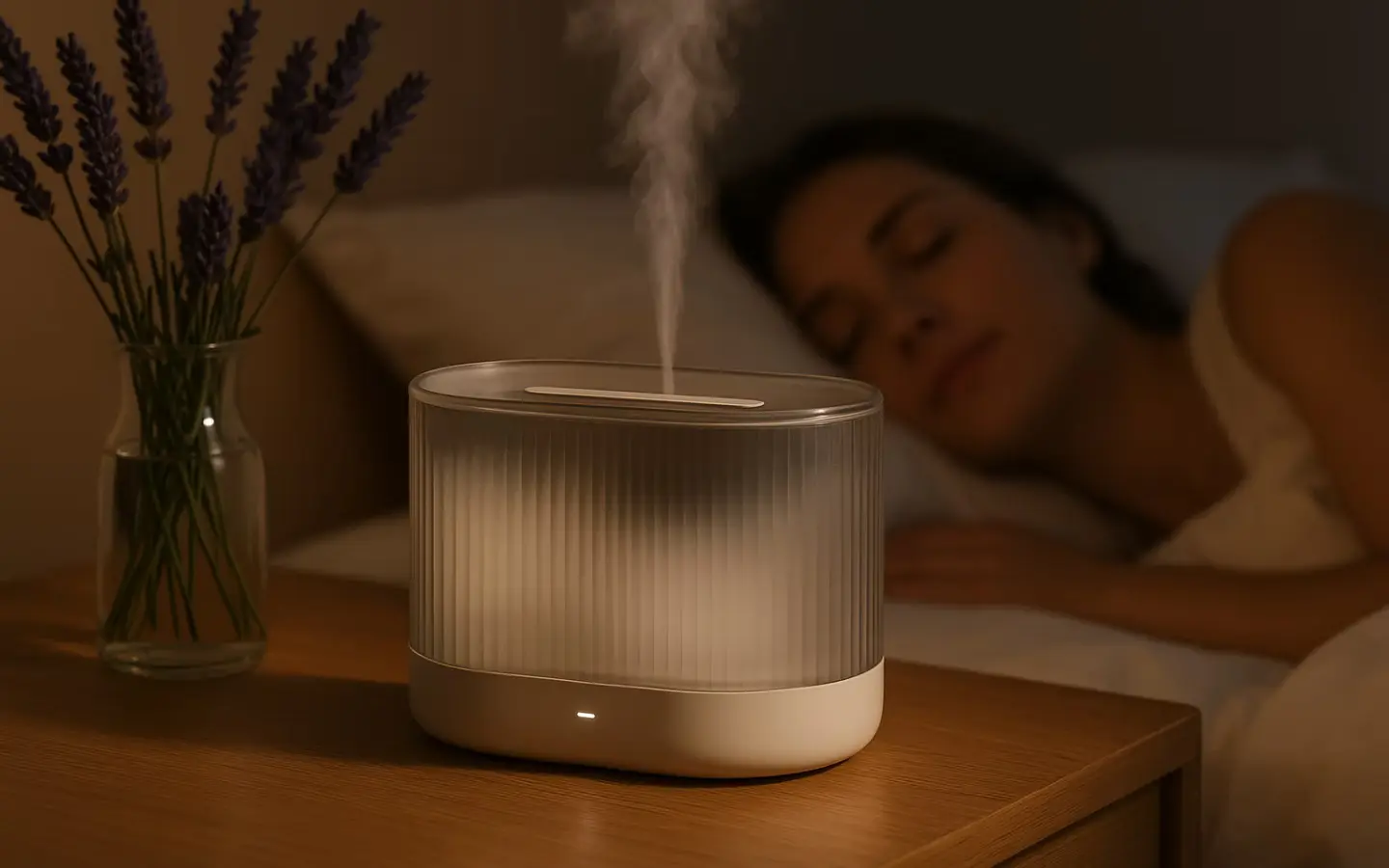
You don't need every product on this list. If stress and nervous system hyperarousal are your main issues, start with Kimba and consider adding sleep tracking to monitor your progress over time.
If you're not even sure what's causing your sleep problems, it’s probably the best idea to get a high-quality sleep tracker like Oura to get better insight into your sleep quality — before investing in other products. The right combination of tools can help create the conditions where restful sleep becomes natural again.


Continue reading
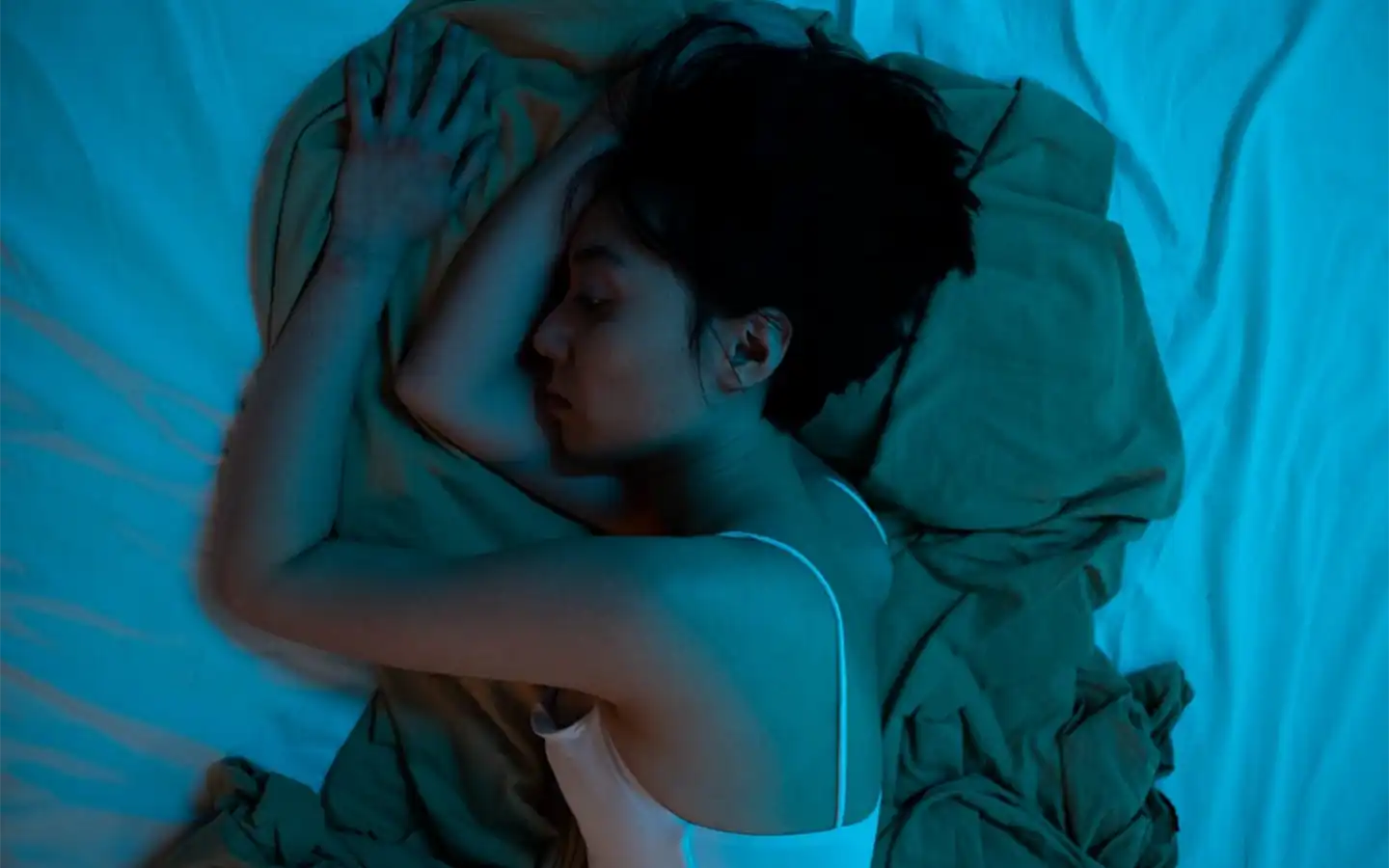
Parasomnias and Why Sleep Becomes Unstable at Night
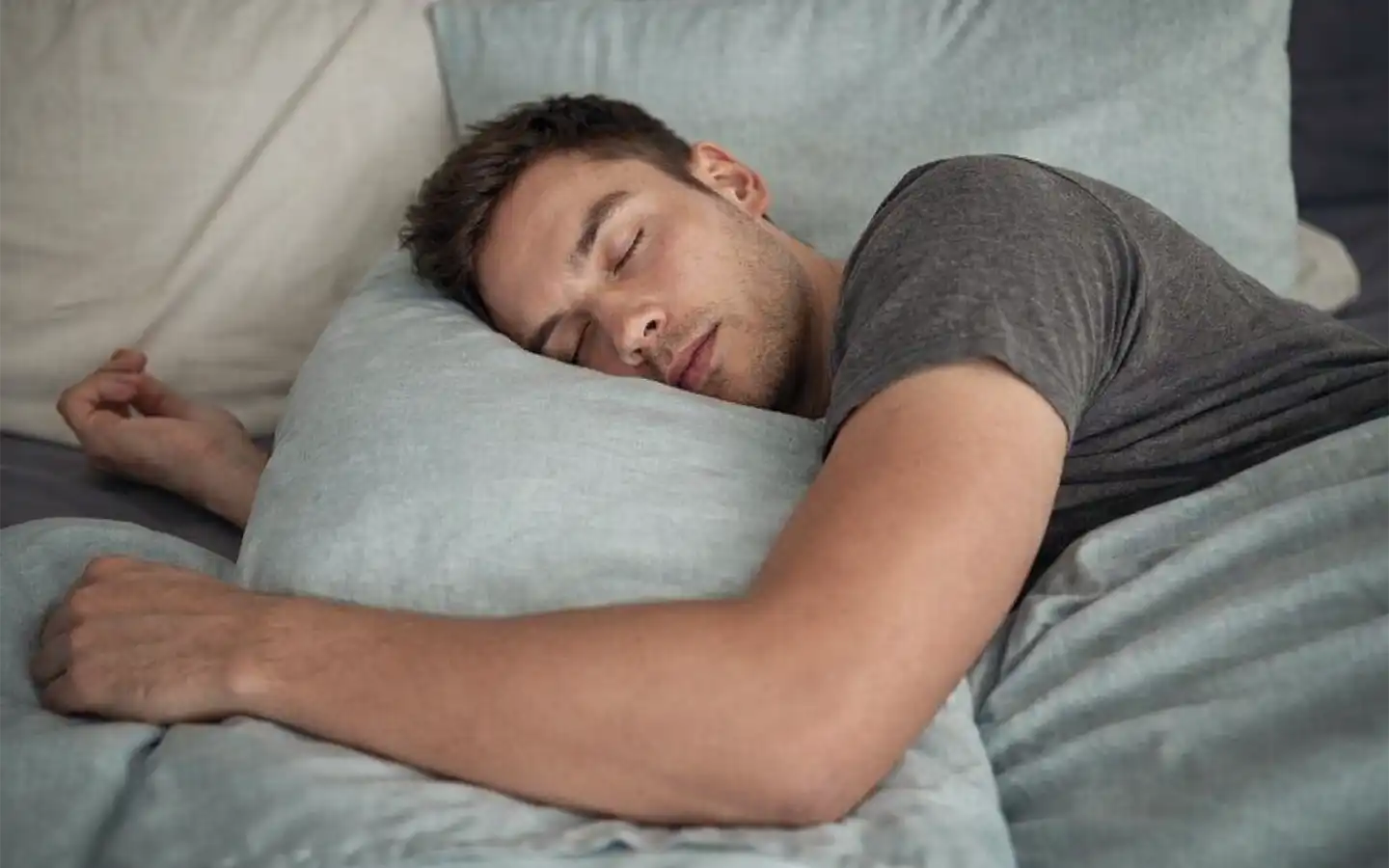
What is REM Sleep And How to Increase It Naturally
